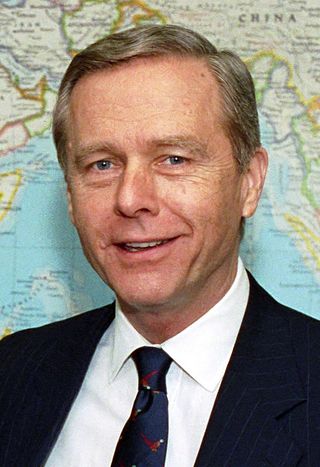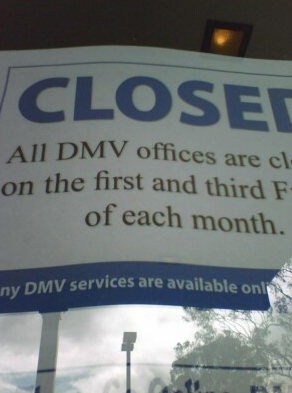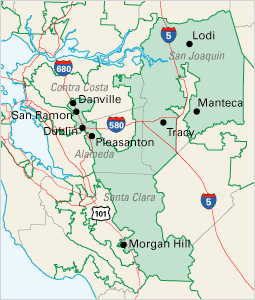Related Research Articles

Edmund Gerald Brown Jr. is an American lawyer, author, and politician who served as the 34th and 39th governor of California from 1975 to 1983 and 2011 to 2019. A member of the Democratic Party, he was elected Secretary of State of California in 1970; Brown later served as Mayor of Oakland from 1999 to 2007 and Attorney General of California from 2007 to 2011. He was both the oldest and sixth-youngest governor of California due to the 28-year gap between his second and third terms. Upon completing his fourth term in office, Brown became the fourth longest-serving governor in U.S. history, serving 16 years and 5 days in office.
A domestic partnership is an intimate relationship between people, usually couples, who live together and share a common domestic life but who are not married. People in domestic partnerships receive legal benefits that guarantee right of survivorship, hospital visitation, and other rights.

Edmund Gerald "Pat" Brown was an American lawyer and politician who served as the 32nd governor of California from 1959 to 1967. His first elected office was as district attorney for San Francisco, and he was later elected Attorney General of California in 1950, before becoming the state's governor after the 1958 election.

Peter Barton Wilson is an American attorney and politician who served as a United States senator from California from 1983 to 1991 and as the 36th governor of California from 1991 to 1999. A member of the Republican Party, he also served as the 29th mayor of San Diego from 1971 to 1983.

Courken George Deukmejian Jr. was an American politician who served as the 35th governor of California from 1983 to 1991. A member of the Republican Party, he was the state's first governor of Armenian descent.

Jay Robert Inslee is an American politician, lawyer, and economist who has served as the 23rd governor of Washington since 2013. A member of the Democratic Party, he served as a member of the U.S. House of Representatives from 1993 to 1995 and again from 1999 to 2012, and was a candidate for the 2020 Democratic presidential nomination. He is the longest-serving current governor in the United States.

The California State Legislature is a bicameral state legislature consisting of a lower house, the California State Assembly, with 80 members; and an upper house, the California State Senate, with 40 members. Both houses of the Legislature convene at the California State Capitol in Sacramento. The California state legislature is one of just ten full-time state legislatures in the United States. The houses are distinguished by the colors of the carpet and trim of each house. The Senate is distinguished by the color red and the Assembly by the color green, inspired by the United Kingdom's House of Lords and House of Commons respectively.

Willie Lewis Brown Jr. is an American politician. A member of the Democratic Party, he served as mayor of San Francisco from 1996 to 2004, the first African American to hold that office.

Leo Tarcissus McCarthy was an American politician and businessman. He served as the 43rd Lieutenant Governor of California from 1983 to 1995.
A balanced budget amendment is a constitutional rule requiring that a state cannot spend more than its income. It requires a balance between the projected receipts and expenditures of the government.

Don Richard Perata is a California lobbyist and former Democratic politician, who was President pro tempore of the California State Senate from 2004 to 2008. He came in second place in the November 2010 election for Mayor of Oakland.

Abel O. Maldonado Jr. is an American politician who served as the 48th lieutenant governor of California from April 27, 2010 to January 10, 2011. As of 2024, Maldonado is the last member of the Republican Party to officially serve as Lieutenant Governor of California to date.

David Alexander Paterson is an American politician and attorney who served as the 55th governor of New York, succeeding Eliot Spitzer, who resigned, and serving out nearly three years of Spitzer's term from March 2008 to January 2011. A member of the Democratic Party, he was the first legally blind person to be sworn in as governor of a U.S. state, and the first African-American governor of New York.

The governorship of Arnold Schwarzenegger began in 2003, when Arnold Schwarzenegger ran for Governor of California in a recall election. He was subsequently elected Governor when the previous governor Gray Davis was recalled and Schwarzenegger placed first among replacement candidates. Schwarzenegger served the remainder of Davis' incomplete term between 2003 and 2007. Schwarzenegger was then reelected to a second term in 2006, serving out this full term and leaving office in January 2011. Schwarzenegger was unable to run for a third term due to term limits imposed by the Constitution of California.
The politics of Vermont encompass the acts of the elected legislative bodies of the US state, the actions of its governors, as overseen by the Vermont courts, and the acts of the political parties that vie for elective power within the state. The state's politics include local Democratic and Republican political parties, as well as several smaller parties.

The U.S. state of California had a budget crisis in which it faced a shortfall of at least $11.2 billion, and projected to top $40 billion over the 2009–2010 fiscal years.

Philip Brian Scott is an American politician, businessman, and stock car racer who has been the 82nd governor of Vermont since 2017. A member of the Republican Party, he was a representative for the Washington District in the Vermont Senate from 2001 to 2011 and the 81st lieutenant governor from 2011 to 2017.

Redistricting in California has historically been highly controversial. Critics have accused legislators of attempting to protect themselves from competition by gerrymandering districts. Conflicts between the governor and the legislature during redistricting often have only been resolved by the courts.

The California state elections in 2020 were held on Tuesday, November 3, 2020. Unlike previous election cycles, the primary elections were held on Super Tuesday, March 3, 2020.
References
- ↑ Weintraub, Daniel M.; Gillam, Jerry (30 August 1992). "Senate, Assembly OK Budget; Wilson Awaits Final Package". Los Angeles Times. Retrieved 24 February 2019.
- 1 2 Reinhold, Robert (3 September 1992). "63 Days After Its Cash Ran Out, California Passes Austere Budget". New York Times. Retrieved 24 February 2019.
- ↑ "California Leaders End Standoff, Meet on State Budget". Washington Post. 31 July 1992. Retrieved 24 February 2019.
- ↑ Reinhold, Robert (2 July 1992). "California Forced to Turn to I.O.U.'s". New York Times. Retrieved 24 February 2019.